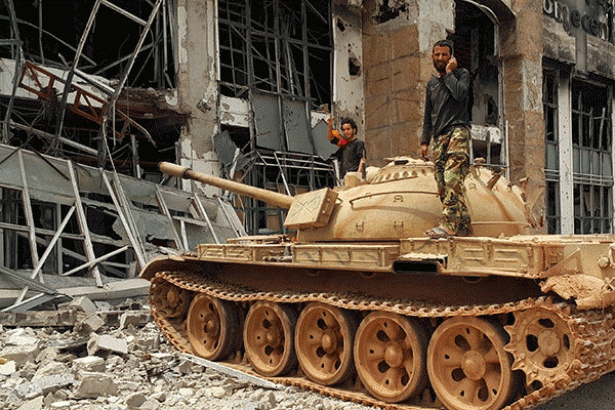Opinion: The war of redistribution in Libya

Libya was a colony of Italy until the end of Second World War – so it was also ruled with Mussolini’s fascist regime. During the Second World War, Libya was captured by the United Kingdom and the USA. Nevertheless, it gained so-called independence in 1951 and it was ruled by a king appointed with the imperialist countries.
In Libya, petroleum was discovered, and the license for search and use of petroleum was shared among American, British, and French monopolies. The USA was further granted a permanent military air base.
Following the situation in Egypt, student movements seeking independence gained momentum. 50 years ago today the Free Unionist Officers captured the power and Muammar Gaddafi became the president of the Revolutionary Command Council.
The revolutionary military officers undertook the bourgeois revolution since Libya lacked self-conscious classes in the modern sense. Libya then withdrew from agreements with the imperialist countries, and banks and petroleum companies were nationalized under the control of the state.
The Socialist People's Libyan Arab Jamahiriya was established in this way. Libya was not a socialist country; however, it demonstrated the characteristics of populism, enlightenment, and anti-imperialism. The notion of ‘socialist’ in its name was a reference to the Soviet Union which was then a respected country and the support for anti-imperialist movements on a world scale. In Libya, the emergence of working class movement was further prevented.
Considering the current partition in Libya, the Jamahiriya’s attempt alongside Syria and Egypt at the United Arab Republic was a progressive achievement.
Today we will not discuss the marketization in Libya following the dissolution of the USSR. Nevertheless, such marketization paved the way for the current partition of Libya by the imperialist countries. Following the ‘Arab Spring’ as called by the imperialists’ media, NATO intervened in Libya in 2011. The USA, the UK, and France heavily bombed the country through the air corridor controlled by Italy. The whole world witnessed the public lynching of Gaddafi.
In this way, Libya lost all its progressive achievements. Imperialist countries do not care about Libyan people but petroleum. The map demonstrates the current partition in Libya.
Since 2011, Libya is currently divided into two parts. In the west, there is the Government of National Accord in Tripoli, and in the east, there is the House of Representatives in Tobruk bordering Egypt.
The Italian energy monopoly Eni, which was already granted concessions, controls petroleum in the west and directs it to Italy as can be seen on the map. The EU supports the jihadist movements in the west and the Muslim Brotherhood coalition. Guess where Turkey and the Turkish companies stand! Here is a clue: The Muslim Brotherhood party is called the Justice and Development Party.
The French energy monopolies Total and GDF-Suez massively gains at the stock exchange market when the attack on Libya starts and hundreds of people die. This must be the ugliest sign of imperialism.
France seeks petroleum in the east and promotes the Tobruk government, which is already supported by Egypt, Saudi Arabia, and the United Arab Emirates.
Where does the USA stand?
This can be answered by discussing who the General Khalifa Haftar, is the leader of the Tobruk army and government, is. Nobody would guess he was educated in Frunze Military Academy in the USSR and he is fluent in Russian.
Haftar was defeated during a war with Chad when Gaddafi was in power. Haftar was captured as a prisoner in Chad in 1987. He was liberated owing to the US interference and he lived in the USA for twenty years. Following the imperialist attack on Libya, he returned to the country to fight against Gaddafi.
Even though the US does not give any public statement on the issue, it is known that it supports Haftar to play a significant role in the hegemonic war in Africa. To prove this, we should remember how the US withdrew once Haftar’s army besieged Tripoli.
Russia still could not achieve what it sought for despite the news in the media.
Turkey and the Turkish companies have again become the loser in this war. Poor AKP, it has not been lucky lately.



